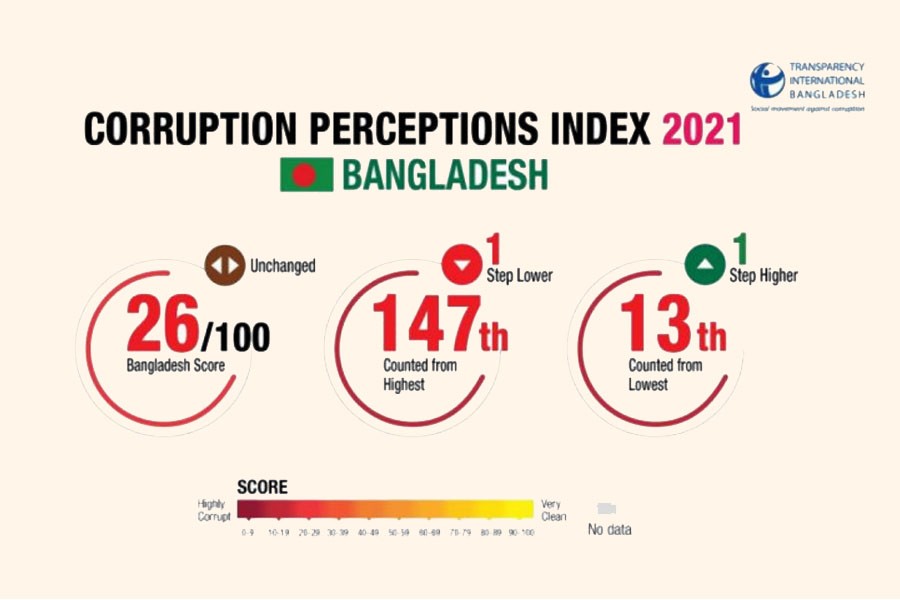Bangladesh's static position in the Berlin-based Transparency International's Corruption Perception Index (CPI) for the past four years does not particularly make the country proud. It fares only better than Afghanistan, a war ravaged country and in unrelenting turmoil, among the South Asian countries. But here is a country that has been doing far better than any of those countries in terms of most of the development parameters. If this is not enough to highlight the incompatibility between a rising economy that propels it on course of achieving the enviable status of a developing country and the CPI rating, the declared policy of zero tolerance to corruption from the highest ruling echelon should have made the situation better. The truth is that the ordinary citizens of the country are not corrupt, nor are they in a position to abuse power or take undue advantage of public resources. It is the educated, privileged, influential people in administrative or representative positions who gain illegal wealth by foul means.
Aware of the ill practice, the top authorities in the country took quite a bold step to stem it. In 2015, they doubled the emolument of officers and employees in government service, which was further complemented with enhanced perks and other benefits. But apart from the year 2017 when the country's score was 28 on the CPI, it has dipped to the earlier score of 26 only an improvement by one point to that of 2014 and 2015. This shows that the country's overall socio-economic progress is lopsided where the privileged section makes the most of the opportunities by means fair or foul, depriving the majority of the population of the wealth created. No wonder, stories of fabulous ill gains by corrupt elements and siphoning off the black money by unlikely quarters keep weakening institutions but also hurting the conscience of the nation.
Old habits die hard. That is what seems to have got the better of prudence, accountability, transparency, professionalism and love for the country and its people. It is a malady of free market economy and excessively consumerist society. Wealth creation at the initial stage goes through a tortuous course and at some point it has to be regulated with iron hands or there emerges an oligarchic class which takes control of every aspects of national life. Intelligentsia, creative, artistic, inventive, cultural and scholarly segments are relegated to the back row of society, hastening further decline in moral principles.
If this was not the case, graft in public offices should have become a rare thing if not disappeared altogether after the offer of a decent pay package for government service. But when avarice rules the roost, the opposite is the case, meaning only a handful of honest officers and employees are there to prove that not the last defence has crumbled. The reason behind bribery has been addressed but this was not enough for many to learn the lesson. Now is the time to come hard upon the corrupt who vitiate the financial regime. If exemplary punishment such as termination of job and jail sentence is meted out, it will prove a right step towards rooting out the corruption culture.


